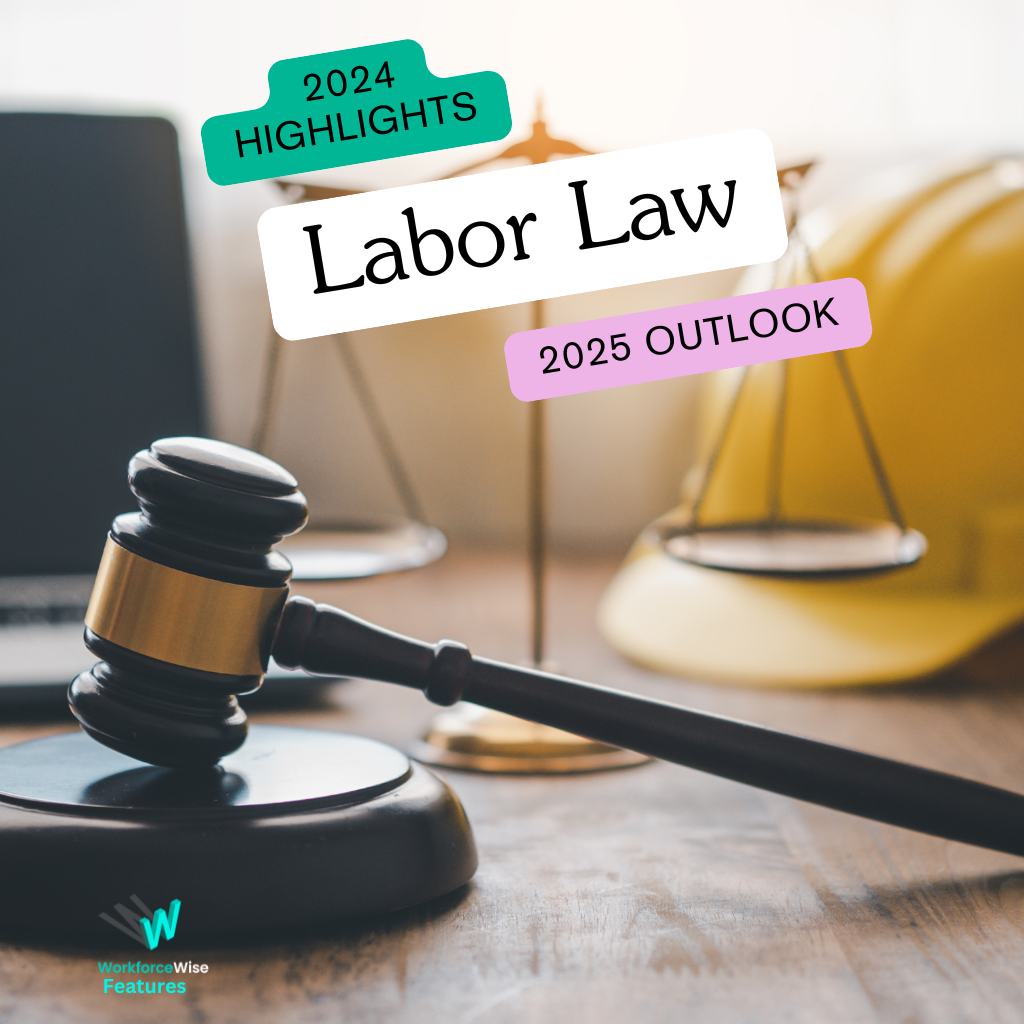2024: Highlights
Overtime Rule Expanded and Then Cut Back
One of the most significant changes in 2024 was the revision of the “salary test” under the Fair Labor Standards Act (FLSA). The US Department of Labor updated the salary threshold for the “bona fide executive, administrative, or professional” exemption:
- July 1, 2024: The salary threshold increased from $35,658 to $43,888 annually.
- Planned January 1, 2025: A further increase to $58,656 was scheduled.
However, this change faced a legal hurdle when a federal judge in Texas struck down the rule in November 2024, citing that the Department of Labor exceeded its authority.
Implications for Employers:
- Employers who raised salaries in compliance with the July 2024 rule may now consider rolling back these increases, though this could negatively affect employee morale.
- Employers must also account for varying state laws, where salary thresholds may exceed federal requirements.
- The Department of Labor could appeal the ruling to the US Court of Appeals for the Fifth Circuit, but with President-elect Trump’s administration incoming, such a defense of the rule seems unlikely.
Federal and State Scrutiny of Non-Compete Agreements
Federal Trade Commission (FTC) Final Rule: In April 2024, the FTC issued a final rule banning most employment-based non-compete agreements, with exceptions for:
- Sales of businesses
- Senior executives earning at least $151,164 annually in policymaking roles
The rule was set to take effect in September 2024, but a federal judge in Texas issued a nationwide injunction in August, blocking its implementation. While the FTC has appealed the ruling, the outcome is uncertain given the political shift.
State-Level Activity:
- Several states, including Maine, New York, and Rhode Island, vetoed bills to prohibit non-competes.
- Other states have enacted restrictions, including minimum salary thresholds and industry-specific bans (e.g., healthcare).
EEOC Guidance on the Pregnant Workers Fairness Act (PWFA)
The Pregnant Workers Fairness Act (PWFA) expanded protections for pregnant employees and applicants, requiring employers to provide reasonable accommodations. The EEOC’s final regulations, effective June 18, 2024, clarified these accommodations, which include:
- Adjustments to equipment or workstations
- Temporary reassignment
- Leave for healthcare appointments
- Reserved parking spaces
- Telework options
This framework differs from the Americans with Disabilities Act (ADA), as pregnancy is not classified as a disability under the ADA.
2025: Outlook
Overturn of Captive Audience Meeting Ban
In November 2024, the National Labor Relations Board (NLRB) overturned a 1948 precedent allowing employers to hold mandatory “captive audience” meetings to discourage unionization. This aligns with NLRB General Counsel Jennifer Abruzzo’s recent efforts to curtail anti-union messaging in the workplace.
State-Level Developments:
- Ten states, including Illinois, have enacted laws banning captive audience meetings.
- More states are expected to follow in 2025, but these laws could face federal challenges under a more conservative NLRB.
Increase of Immigration “Dawn Raids”
The incoming Trump administration is expected to resume aggressive immigration enforcement, including:
- Dawn raids targeting companies suspected of employing unauthorized workers.
- I-9 audits to ensure proper documentation.
Industries employing large numbers of immigrant workers, such as hospitality, construction, and manufacturing, are likely targets. Employers should proactively review their I-9 forms and documentation to prepare for potential audits and raids.
Summary of Key Changes
| Year | Key Changes | Impact on Employers |
|---|---|---|
| 2024 | Overtime rule expanded and then struck down, FTC non-compete rule blocked, EEOC guidance on PWFA | Potential for salary rollbacks, continued use of non-competes, need for pregnancy-related accommodations |
| 2025 | Overturn of captive audience meeting ban, increase in immigration enforcement | Potential for increased unionization efforts, disruption from raids and audits |
Conclusion
Changes in labor laws often accompany shifts in political leadership, as seen with the incoming Trump administration. Employers should anticipate potential rollbacks of employee-friendly policies and heightened enforcement actions in areas like immigration compliance. Staying informed and consulting employment counsel will be crucial to navigating these evolving challenges and minimizing disruption to business operations.





